Originally published: August 20, 2024
This is Part 3 of a 4 part feature where I cover 4 of the top energy issues that will be discussed this summer, especially as politicians return home for August Recess.
Warmer temperatures are less of a threat than cold ones, and fossil fuels make us safer from both.
-
Anti-fossil fuel politicians love summer because hot temperatures give them the opportunity to portray the world as “on fire”—and offering anti-fossil-fuel policies as a solution.
In reality, cold is a bigger problem than heat—and anti-fossil-fuel policies make both worse.1
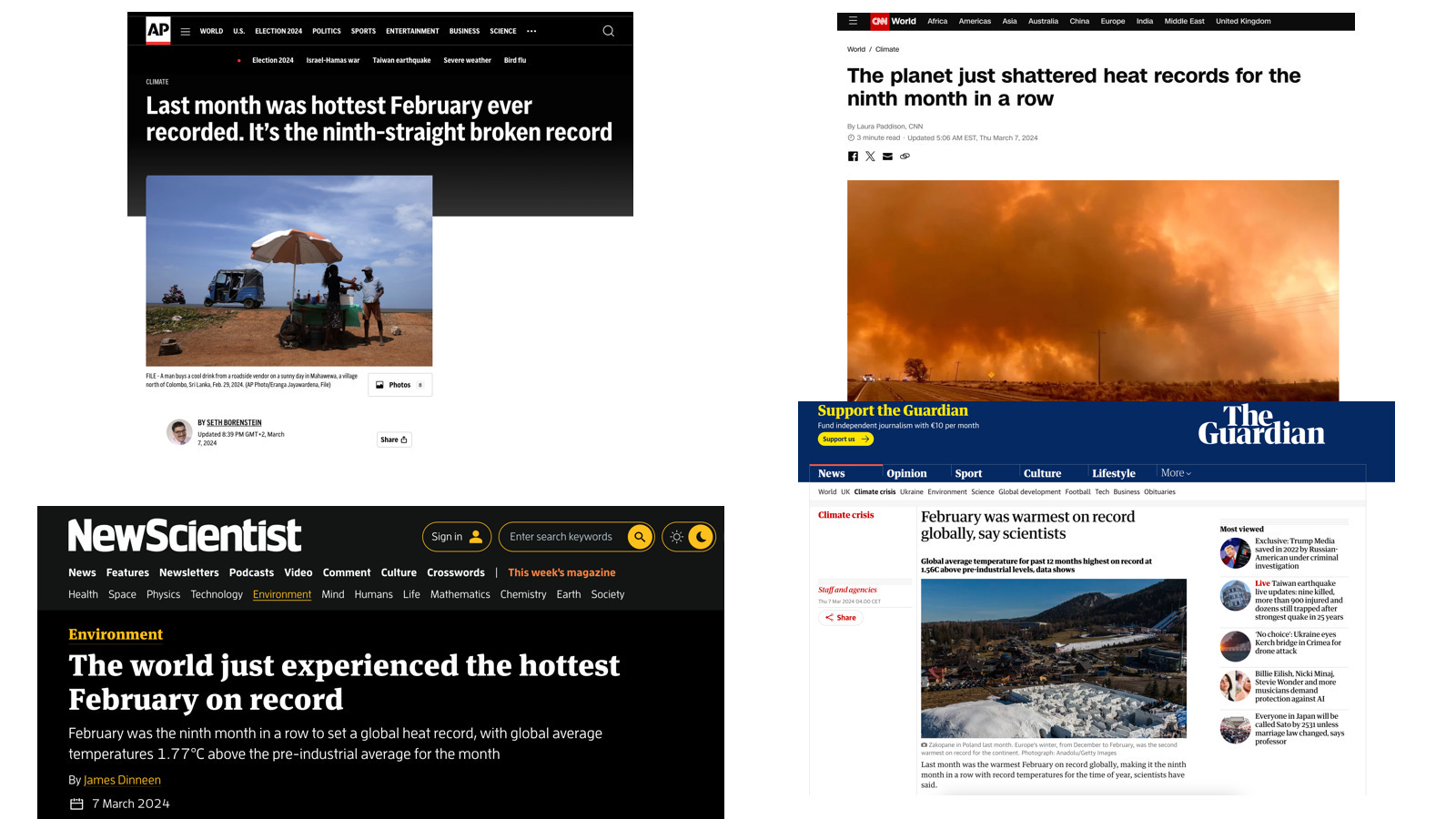
-
Anyone commentating responsibly on summer temperatures must acknowledge 3 facts:
- Heat-related deaths are far less prevalent than cold-related deaths
- Earth is warming slowly—especially in warm places
- Fossil fuels make us safer from both cold and heat
-
1. Heat-related deaths < cold-related deaths
When our leaders discuss the warming of the planet, they treat warming as obviously bad. But while they portray the planet as already “too hot,” the fact is that far more human beings die of cold than of heat.2
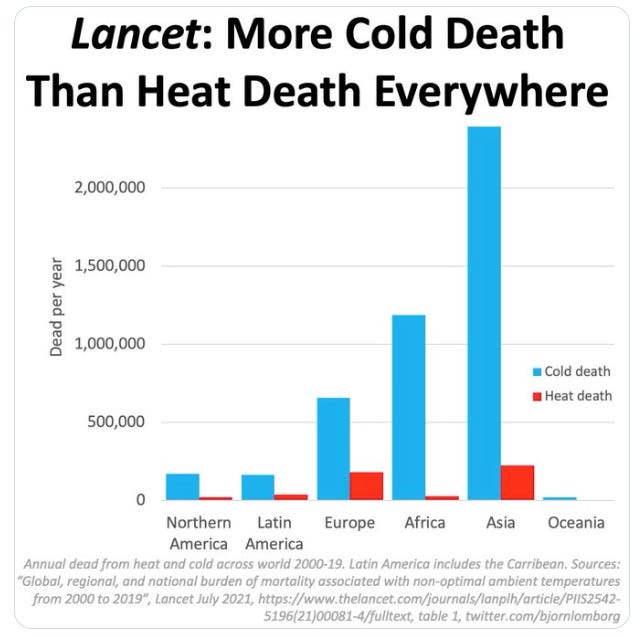
-
Study after study has found that deaths from cold outnumber deaths from heat by 5-15 times. On every continent cold is more dangerous than heat. Even in many countries we think of as especially hot, such as India, cold-related deaths significantly exceed heat-related deaths.3
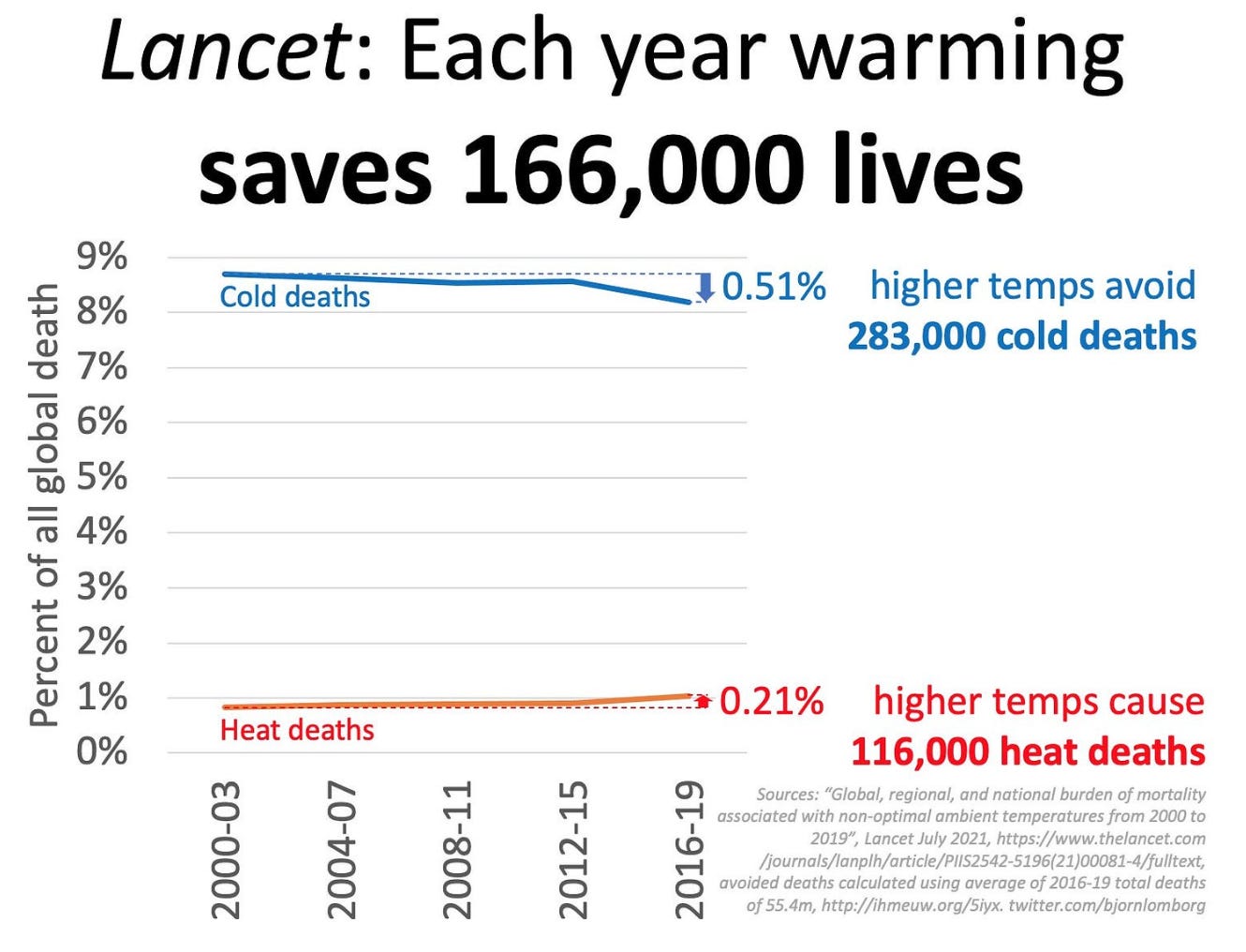
-
2. Earth is warming slowly—especially in warm places
So far we’ve had ~1°C of warming from a cold starting point in Earth's history 150 years ago. Future warming will be limited by the diminishing nature of “the greenhouse effect”—as well as being concentrated in colder places.4
-
Warming so far has been slow and benign. But will future warming make the world unlivably hot? No, given 2 facts almost universally acknowledged by climate scientists: 1) the diminishing warming impact of CO2 and 2) the concentration of warming in colder places.
-
The warming impact of CO2 diminishes (“logarithmically”) as it increases in concentration.
Every new molecule of CO2 we add to the atmosphere has less of a warming effect than the previous one. Warming will diminish as emissions increase—the only question is at what rate.5
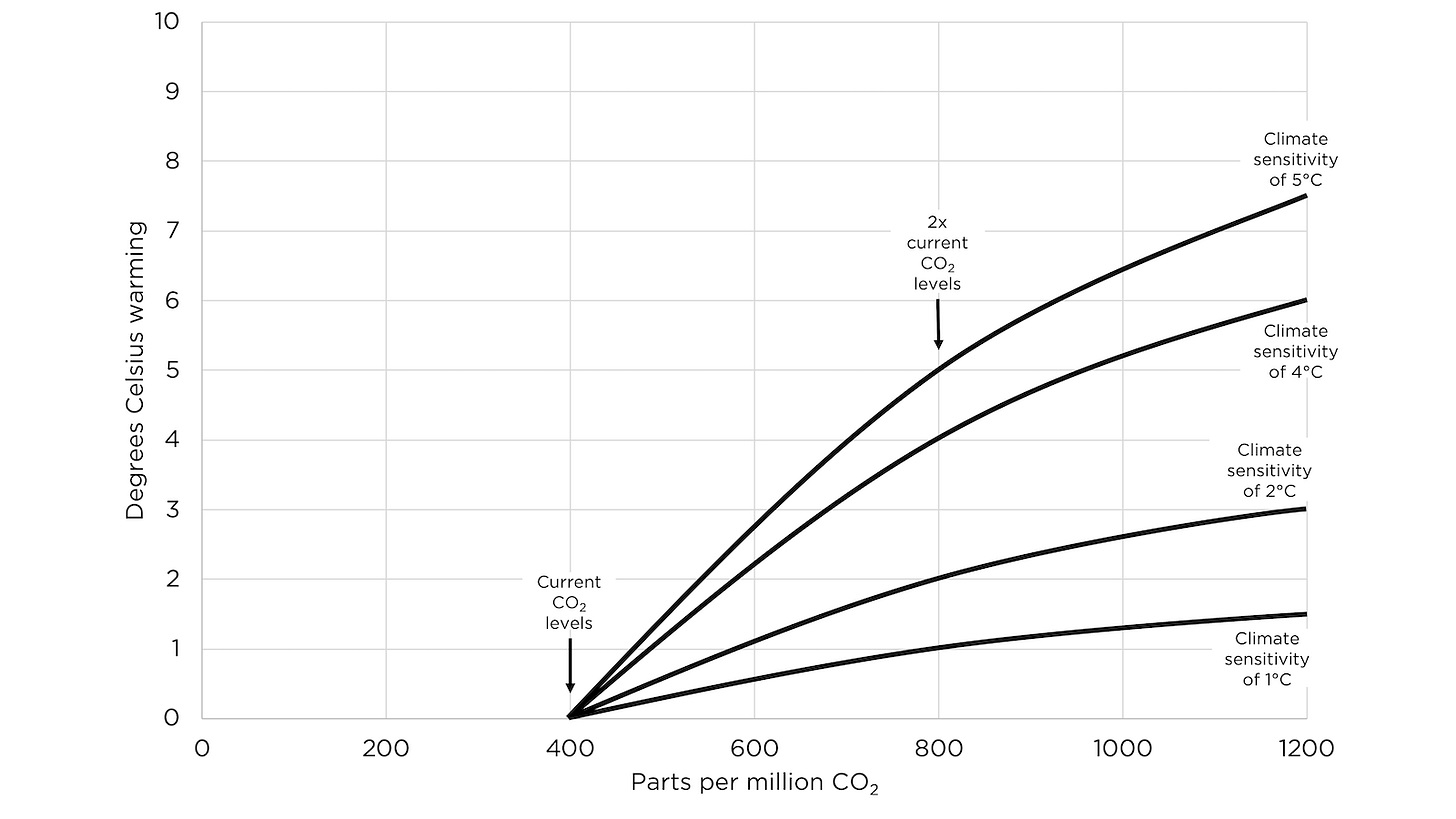
-
Climate warming is concentrated in colder areas of the world (such as the Arctic), during colder times of day, and during colder seasons.
This means that future warming will occur more in cold situations where it saves lives than in hot situations where it causes problems.6
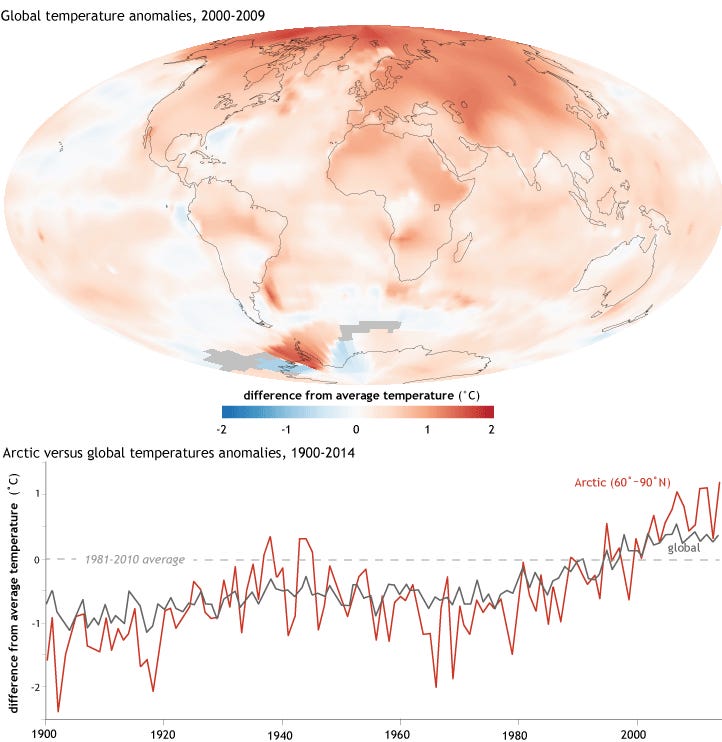
-
All reporting on the warming of the Earth should specify not only that humans are far more endangered by cold than by heat, but also that Earth is warming slowly—and less in warm places. That virtually no reporting acknowledges this shows that much “reporting” is propaganda.
-
3. Fossil fuels make us safer from dangerous temperatures
Not only is the warming from fossil fuels’ CO2 emissions slow and in many ways beneficial, the uniquely cost-effective energy we get from fossil fuels makes us both safer from cold and heat.
-
The key to being protected from dangerous temperatures is to master them by producing different forms of temperature protection, such as: insulated buildings, heating, and air-conditioning. All of these things require energy—which means for most people they require fossil fuels.
-
Fossil fuels are the only source of low-cost, reliable energy that for the foreseeable future can provide energy to billions—in a world where 3 billion people still use less electricity than a typical American refrigerator.7
-
On a planet where people die much more from cold than from heat, but both are major threats, the key to safety is to have energy be as affordable and plentiful as possible so as many as possible can afford heating and air conditioning. For now this means more fossil fuels.
-
People who blaming pro-fossil-fuel politicians for hot temperatures evade that:
- Cold is more dangerous than heat
- Warming is slow, especially in warm places
- We need fossil fuels to protect us from cold and heat
-
Reducing CO2 emissions in a humane and practical way means focusing on liberating alternatives—especially the most potent, nuclear—to try to truly outcompete fossil fuels in the future. Depriving us off fossil fuels now and pretending China will follow is immoral and impractical.
References
-
AP - Last month was hottest February ever recorded. It’s the ninth-straight broken record
CNN - The planet just shattered heat records for the ninth month in a row
New Scientists - The world just experienced the hottest February on record
The Guardian - February was warmest on record globally, say scientists↩
-
Bjorn Lomborg: Climate change and deaths from extreme heat and cold
Gasparrini et al. (2015) - Mortality risk attributable to high and low ambient temperature: a multicountry observational study↩
-
Bjorn Lomborg - Climate Change Saves More Lives Than You’d Think
Gasparrini et al. (2015) - Mortality risk attributable to high and low ambient temperature: a multicountry observational study↩
-
NASA - GISS Surface Temperature Analysis (GISTEMP v4)
U.S. National Oceanic and Atmospheric Administration, climate.gov - Climate change rule of thumb: cold "things" warming faster than warm things↩
-
Equilibrium climate sensitivity defined as a warming in °C per doubling of greenhouse gas concentrations in the atmosphere. The IPCC estimates it to be between 2.5°C and 4°C. Other analysis suggests it to be below 2°C. Climate etc. - Important new paper challenges IPCC’s claims about climate sensitivity
Alex Epstein - Fossil Future: Why Global Human Flourishing Requires More Oil, Coal, and Natural Gas–Not Less↩
-
U.S. National Oceanic and Atmospheric Administration, climate.gov - Climate change rule of thumb: cold "things" warming faster than warm things↩
-
Robert Bryce - A Question of Power: Electricity and the Wealth of Nations↩
